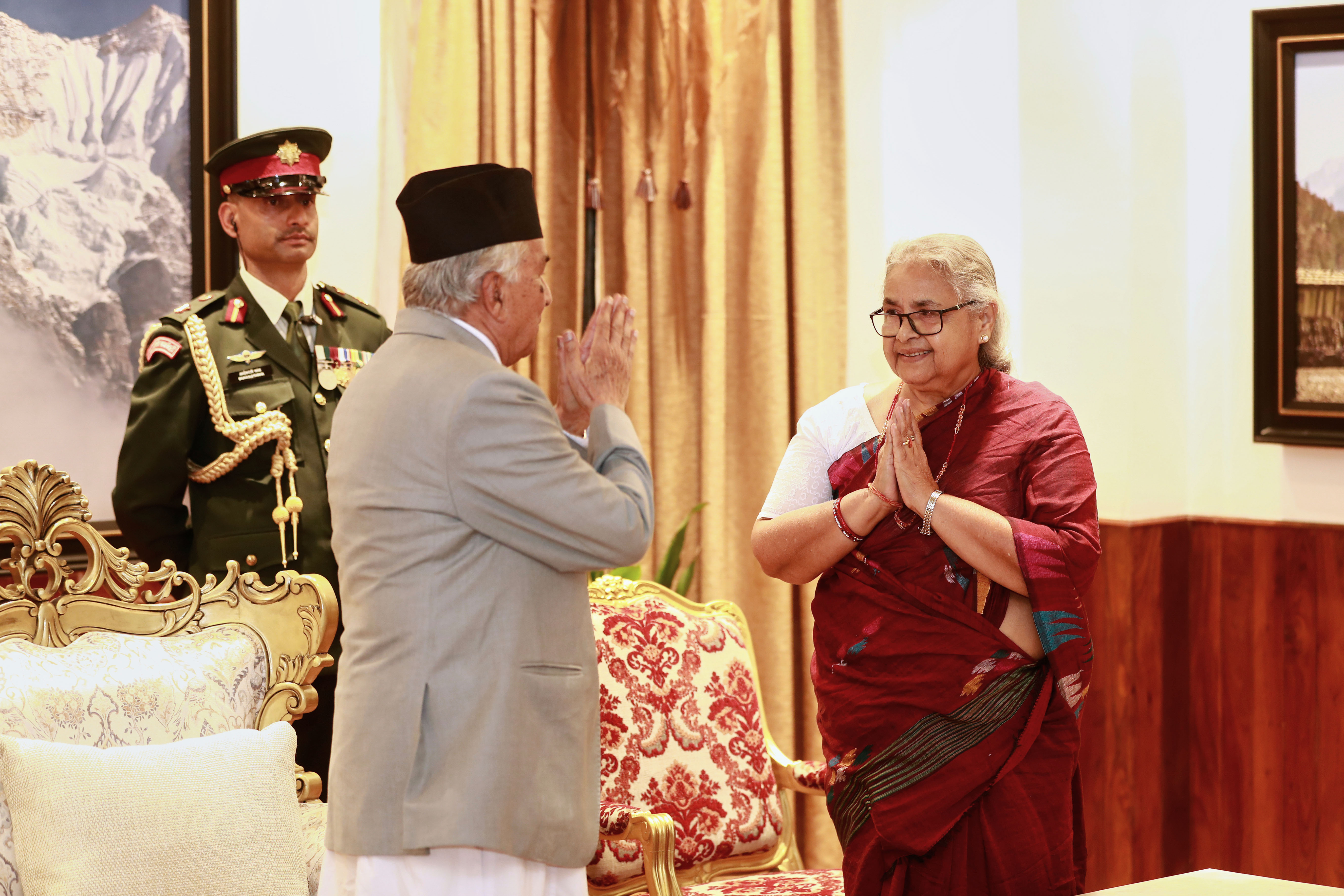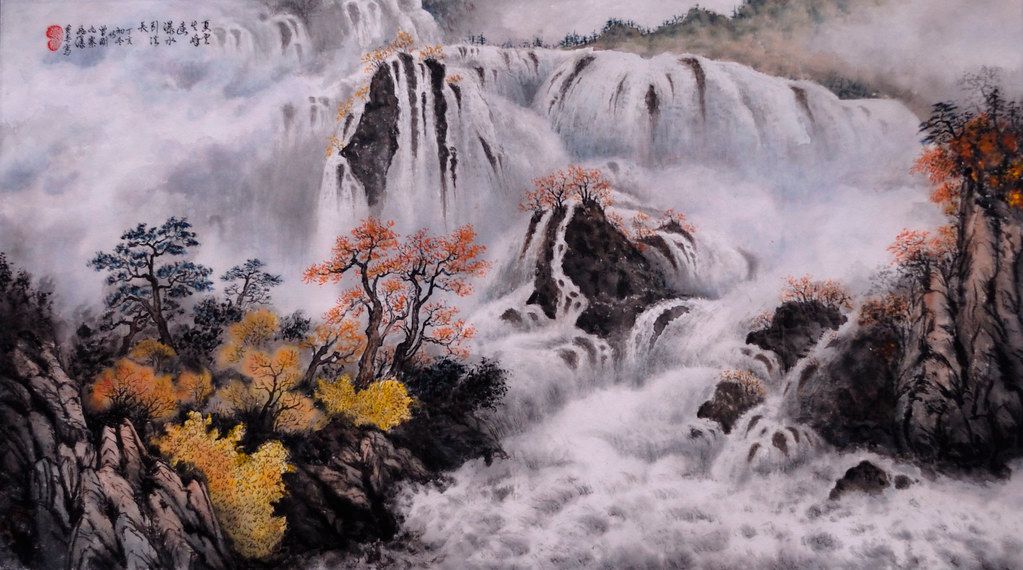
In an era increasingly defined by transparency and a critical re-examination of privilege, the term “nepo baby” has swiftly permeated our collective consciousness, sparking widespread debate. This seemingly casual shorthand for “nepotism baby” illuminates a compelling phenomenon: individuals whose professional ascents appear undeniably influenced by inherited advantage rather than solely by individual merit. It challenges deeply held beliefs about meritocracy, urging us to consider the intricate ways lineage can shape destinies across diverse fields. This article delves into the multi-faceted implications of such inherited influence, from global politics to the glittering world of entertainment.
The designation itself encapsulates a complex interplay of inherent advantages and heightened expectations, often inviting intense public scrutiny. While offering expedited routes to success through elite connections and resources, it simultaneously burdens individuals with the task of proving their worth beyond their family name. This tension between leveraging heritage and forging an authentic path lies at the heart of the “nepo baby” narrative. It’s a testament to how power dynamics are subtly yet profoundly redefined by the enduring shadow of lineage.
Our extensive exploration will unpack this phenomenon, beginning with its core definition and tracing its pervasive impact across the global political landscape. We will examine how hereditary democracy operates, its surprising facilitating role in the rise of women leaders, and the critical disjuncture between voter expectations and the reality of elected heirs. Finally, we will scrutinize its manifestation within the U.S. Congress, revealing historical patterns and modern trends that underscore the deep embedding of inherited advantage. This journey promises an in-depth, sophisticated understanding of a truly defining modern cultural discourse.

1. **Defining the “Nepo Baby”: Origins and Core Meaning**Fundamentally, a “nepo baby” is an individual whose career path directly mirrors or is related to a field where a parent has already achieved significant success. The inherent implication is that this child has utilized pre-existing parental connections within that specific industry, providing an undeniable head start. This sets their professional trajectory apart from those who navigate entirely unassisted.
The term itself, now ubiquitous, carries a distinctly pejorative undertone, suggesting that a celebrity or politician’s fame and accomplishments stem less from individual talent and more from unearned advantage. This critical perspective challenges the perceived legitimacy of their achievements, casting a shadow over their accolades. It fuels public questioning of pure merit in a supposedly meritocratic society.
More than a simple label, the designation encapsulates “a complex amalgamation of advantages and expectations,” as noted in the provided context. These benefits, such as access to elite education, invaluable professional introductions, or robust financial resources, often pave an expedited route to prominence. Yet, this privilege also invites intense public scrutiny, raising expectations to an almost unattainable degree.
The phenomenon highlights a persistent societal tension between appreciating inherited opportunities and demanding evidence of individual capability. It serves as a powerful lens through which to examine modern structures of power and influence, often revealing the subtle yet profound ways personal connections shape professional destinies. Understanding the “nepo baby” means grasping this duality of inherited boost versus the ongoing struggle for personal validation.

2. **The Global Reach of Hereditary Democracy: Prevalence and Implications**Dr. James Loxton’s pivotal research unveils hereditary democracy as one of the most common, yet underappreciated, global features of democratic systems. His study from the School of Social and Political Sciences introduces this crucial concept, revealing its extensive worldwide prevalence. Dr. Loxton posits that this practice, where political power is passed through familial lines within democratic frameworks, holds “significant implications for both the political landscape and voter expectations.” It subtly reshapes the conventional understanding of leadership emergence in open electoral systems.
A striking “Key Finding” from Dr. Loxton’s analysis highlights the contemporary extent of this trend: “Hereditary democracies today outnumber hereditary autocracies.” In essence, “heads of government with parents who were also heads of government are more prevalent in democracies than in autocratic countries.” This challenges simplistic classifications, indicating a deep intertwining of family legacy with democratic governance. It suggests a powerful mechanism of power transmission even within systems designed for popular choice.
The study provides compelling examples, showcasing figures like “Canada’s Justin Trudeau to George W. Bush in the United States, to Ferdinand ‘Bongbong’ Marcos Jr in the Philippines, or the recently ousted Prime Minister Sheikh Hasina of Bangladesh.” These individuals represent a broader network of familial political succession operating within ostensibly democratic nations. Their diverse national origins confirm that this is a widespread characteristic, not an isolated anomaly.
Quantifying this prevalence, Dr. Loxton’s research rigorously “examined the prevalence of hereditary democracy by analysing democratically elected heads of government who were children, spouses, or siblings of former heads of government in countries with sustained democratic periods between 1945 and 2010.” The results showed “36 of 89 democracies (40 percent) have such leaders.” As of “June 2024, eleven of the world’s democracies have heads of government whose fathers or husbands were heads of government before them,” including nations like Estonia, Greece, and Uruguay. This data firmly establishes the “nepo baby” phenomenon as deeply embedded within global political power structures.

3. **Hereditary Democracy’s Undermining of the Democratic Process**Dr. Loxton’s study unequivocally “condemns hereditary democracy, highlighting its fundamental unfairness and detrimental impact on the political system.” This practice erodes the ideals of equal opportunity and merit-based leadership inherent to democratic principles. Such an electoral framework, by its very nature, works against the public interest by prioritizing lineage over qualification.
A significant detrimental impact identified is the restriction of political access. “By limiting political office to those with family connections in politics, hereditary democracy makes it more likely that mediocre leaders will rise to power.” This effectively stifles genuine democratic competition, potentially sidelining more qualified candidates lacking familial imprimatur.
The study emphasizes the ethical and practical unfairness, drawing a clear parallel: “Nepotism is wrong in politics, just as it is in the workplace.” This comparison grounds the academic critique in a universally understood moral framework, asserting that political nepotism is not just inefficient but fundamentally unjust in a system designed for public service. Dr. Loxton passionately advocates that this practice “should not be accepted as a norm,” urging policymakers and the public to acknowledge its inherent flaws.

4. **The Paradoxical Role: Hereditary Democracy and the Rise of Women Leaders**A striking paradox within Dr. Loxton’s critical analysis is the unexpected facilitation of women leaders by hereditary democracy. “Despite its harms,” the study reveals, “hereditary democracy has facilitated the rise of women leaders in countries including India, Sri Lanka, Bangladesh, Pakistan, and Indonesia.” This intriguing finding offers a complex counterpoint to the system’s inherent unfairness.
Notably, many of these women ascended to power “often decades before their Western counterparts,” challenging conventional narratives of gender equality in politics. This suggests that established structures of inherited political power, while exclusionary in one sense, inadvertently provided a unique pathway for women to overcome historical barriers. Leveraging existing family networks became an unconventional route to leadership in traditionally patriarchal societies.
This peculiar trade-off highlights that a system criticized for limiting general opportunities can, in specific cultural and historical contexts, enable a different kind of progress. It forces a nuanced understanding of political evolution, where undesirable systems occasionally yield unforeseen, positive social changes. The phenomenon underscores the multifaceted nature of political and social development, defying simplistic judgments of good or bad.

5. **Voter Expectations vs. Reality: Divergence of Elected Heirs**A critical dimension of hereditary democracy explored by Dr. Loxton concerns the psychological contract between voters and the relatives of prominent politicians. “When voters elect relatives of prominent politicians, they often assume similarities in leadership style or policy positions.” This natural assumption, rooted in a belief that shared lineage implies shared political philosophy, allows the family name to become a de facto platform.
However, this assumption often leads to significant disillusionment. The study highlights that “elected heirs may diverge significantly from their predecessors, leading to disappointed voter expectations and poor representation.” Progeny, despite their inherited name, might forge distinct ideological paths or simply lack the specific qualities that endeared their predecessors to the public.
This dynamic is compounded by an “inherited incumbency advantage,” explained through factors like “the sway of party elites and the preferences of the voting masses.” Such advantages facilitate not just initial political entry but also sustained power, making it difficult for challengers to break through. Voters may find themselves re-electing individuals whose policies no longer align with original expectations, creating a cycle of potential misrepresentation and highlighting the continuous negotiation between an inherited past and a self-determined future.

6. **Unpacking Nepotism in the U.S. Congress: Historical Context and Modern Trends**The U.S. Congress, often seen as a meritocratic arena, has a complex history with political nepotism, exemplified by the Frelinghuysen family. Rodney Frelinghuysen’s 2018 retirement, after 12 terms as a New Jersey Congressman, was particularly notable given his prior statement that his daughters were “politically astute, but smart enough not to run themselves.” This represented a rare pause in a multi-generational political dynasty, with many Frelinghuysens having served in federal government, including his father and notable figures from the 1800s.
To quantitatively assess this, an innovative approach utilized “Wikipedia page” notoriety as a proxy for “political privilege or nepotism a bit more broadly.” The premise was simple: “if at least one of your parents was notable enough to have Wikipedia page, you likely had some advantages in your political career.” This “nepo baby rate” offered a more nuanced understanding of inherited political capital than mere direct succession.
This analysis revealed two significant trends. “Primarily, since 1900 the Senate has more nepo babies than the House of Representatives,” attributed to its smaller size and greater individual power, making nominations “more susceptible to intra-party dealings and, thus, nepotism.” Historically, “Before the passage of the 17th Amendment in 1913 senators were not elected directly by the people but by state legislators,” further entrenching familial influence.
A “second more glaring trend” showed “a dramatic increase in congressional nepo babies across congressional houses” since the 1980s. Notably, “the Democratic party has outpaced the Republican party during this period,” a disparity that persists even when accounting for incumbency, as exemplified by Nancy Pelosi, whose “nepo baby” status has been counted since her 1987 election. The data indicates that “the Democratic Party does not just have more incumbent nepo babies but also more first-time nepo babies,” with the Senate consistently electing more overall.

7. **The Media’s Kaleidoscope: Shaping Perceptions of Nepo Babies**The emergence of the “nepo baby” discourse owes much to the discerning gaze of the media, which has played a critical role in shaping public understanding and perception of inherited privilege. Researchers Michelle Maroto and Jordan Foster, in their study “Nepo Babies and the Myth of Meritocracy,” rigorously explored this dynamic, analyzing 331 news articles concerning nepotism in Hollywood. Their central insight emphasizes that “Media plays a big role in shaping our perceptions of things,” providing the very “words and ideas to make sense of things in the world.”
The study revealed a complex media landscape: a significant 44 percent of articles defended the success of “nepo babies,” often sensationalizing their luxurious lifestyles while simultaneously praising their innate talent and tireless efforts. These narratives frequently posited that while a famous name might open initial doors, ultimate success was solely a product of individual merit. As Maroto observed, this framing, while acknowledging nepotism, subtly “defends it in certain ways, which actually leads to legitimating inequality” by normalizing the advantages.
In stark contrast, only 19 percent of the articles critically examined Hollywood nepotism, acknowledging the inherent inequality and unfair advantages stemming from social connections. These writers recognized that in fiercely competitive environments like entertainment, “certain individuals just wouldn’t have gotten ahead otherwise,” despite possessing comparable talent. This segment of media analysis, while smaller, crucially highlighted the structural barriers that privilege often renders invisible, urging a more nuanced conversation about true meritocracy.

8. **From Twitter to Pop Culture: Catalysts for the “Nepo Baby” Explosion**The term “nepo baby” did not gradually seep into public consciousness; it exploded into pop culture, becoming a ubiquitous shorthand for inherited advantage. This cultural phenomenon gained significant traction about three years ago, following *New York* magazine’s in-depth feature on the increasing number of celebrity offspring achieving success in the entertainment industry. It illuminated a collective realization about the pervasive nature of familial connections in prestigious fields.
The pivotal moment for the term’s ascent was a viral tweet that identified *Euphoria* star Maude Apatow as the daughter of actress Leslie Mann and director Judd Apatow. This seemingly simple observation sparked a broader cultural debate, directly challenging long-held American ideals of meritocracy. As *New York*’s culture editor Gazelle Emami noted, “Suddenly, it felt like everywhere you looked, there was another child of a famous person booking a role,” prompting widespread recognition of the trend.
This initial tweet quickly spurred a massive trend on TikTok, where users enthusiastically pointed out numerous other celebrity “nepotism babies.” The widespread engagement culminated in *New York* magazine’s definitive proclamation of 2022 as “the Year of the Nepo Baby,” solidifying the term’s place in the cultural lexicon. This swift digital proliferation transformed a niche observation into a mainstream cultural touchstone, compelling a global reassessment of how lineage shapes opportunity and success in modern society.

9. **Nepal’s Gen Z Protests: A Cry Against “Nepo Privilege”**The concept of “nepo privilege” is far from an abstract celebrity debate; it can ignite real-world social upheaval, as tragically demonstrated in Nepal in September 2025. Thousands of young Nepalis, many still in their school uniforms, converged in Kathmandu, initially protesting an abrupt government ban on 26 social media platforms. However, this immediate catalyst quickly unveiled deeper, more systemic grievances, revealing profound societal frustrations.
Underlying the protests was a searing anger over widespread corruption, a stagnant economy offering “few opportunities at home,” and endemic political nepotism. Protesters vehemently criticized the “nepo privilege Nepal politician’s children got,” alleging that the offspring of the elite enjoyed comfortable, politically-affiliated lives while ordinary citizens faced severe economic hardship and unemployment. This stark disparity fueled a powerful sense of injustice among a generation feeling consistently marginalized.
The demonstrations, largely spontaneous and coordinated by the youth-focused non-profit ‘Hami Nepal,’ escalated tragically, leading to at least 19 deaths and hundreds wounded. The intensity compelled Prime Minister KP Sharma Oli’s resignation, marking “the most serious unrest Nepal has seen in decades.” This direct link between perceived political nepotism and widespread social unrest powerfully underscores that inherited advantage, particularly in governance, carries profound destabilizing potential and challenges the very fabric of social contract.

10. **Tracing the Threads of Privilege: The Deep Historical Roots of Nepotism**To truly comprehend the modern “nepo baby” phenomenon, one must delve into the deep historical roots of nepotism itself, a practice that long predates contemporary celebrity culture. The term, introduced in the mid-17th century, originates from older European words like the French *népotisme* and Italian *nepotismo*, both derived from the Latin *nipote*, meaning “nephew.” This etymological journey offers critical insight into its earliest documented applications and pervasive nature.
As Senator Charles Sumner observed, nepotism first gained prominence in Rome during the ascendancy of Papal power. It specifically designated “the authority and influence exercised by the nephews, or more generally, the family of a Pope.” This historical context illuminates a pragmatic, albeit controversial, method by which religious leaders, often with children despite celibacy vows, could covertly advance their progeny’s interests, granting them access to ecclesiastical power and connections without open acknowledgment.
The sheer pervasiveness of familial favoritism led to *Il Nipotismo di Roma* in the 1600s, a book described as “full of instruction and warning” against the dangers of prioritizing family connections over individual merit. This historical testament confirms that the ethical dilemmas and societal critiques surrounding unearned advantage are not modern inventions. The existence of equivalents across cultures, such as the Hindi “bhai-bhatijawaad” (rule of the brother and nephew), further underscores its universal, enduring presence as a human tendency rooted in early feudalistic societies where power retention through lineage was paramount.
11. **The Celebrity Confessional: Varied Responses to the “Nepo Baby” Label**The “nepo baby” label has transformed from an online whisper to a roaring public debate, compelling those identified to navigate its implications under intense scrutiny. Celebrities have responded with a striking diversity of reactions, from candid embrace to fervent rejection, each stance revealing the intricate personal and social complexities of inheriting fame. These public responses offer invaluable insight into how individuals grapple with inherited privilege versus the insistent need for personal validation.
Some public figures have chosen to openly accept or even playfully subvert the label. Hailey Bieber, for instance, famously wore a “nepo baby” shirt, a bold statement acknowledging her status while disarming critics. Similarly, actor Jack Quaid has candidly agreed, acknowledging he is “an immensely privileged person” without believing it “undermines my talent.” Allison Williams echoed this sentiment, suggesting that “It doesn’t feel like a loss to admit it. If you trust your own skill, I think it becomes very simple to acknowledge.”
Conversely, other prominent figures have expressed significant discomfort or outright rejected the designation. Lily-Rose Depp, daughter of Johnny Depp, controversially described both “nepo baby” and “industry baby” labels as “sexist and misogynistic,” sparking further debate. Hopper Penn also reportedly rejected the label, highlighting a strong desire to carve out an identity separate from his famous parents. These rejections often stem from a deeply felt need to assert individual merit and agency, challenging the notion that their achievements are solely a product of lineage.
12. **Beyond the “Nepo Baby”: Unpacking the “Industry Baby” Distinction**While the “nepo baby” label captures the most overt forms of inherited advantage, a more subtle yet equally influential category exists within privileged networks: the “industry baby.” This distinction, highlighted by *New York* magazine, expands our understanding of how familial connections, even without direct A-list fame, can provide a significant professional head start. It illuminates the intricate web of social capital that underpins success in creative and professional spheres.
An “industry baby” is defined not by celebrity parents, but by having “a parent or relation that may not have been extremely wealthy or famous, but had achieved some success in the industry, often behind the scenes, which provided their children with connections and opportunities.” *Vulture* further clarified this: a celebrity who “didn’t inherit a famous name, but did inherit connections and knowledge of the business.” This nuanced definition accounts for a spectrum of advantages beyond immediate, recognizable star power.
Parents of “industry babies” often occupy crucial, albeit less public, roles within their fields, such as respected producers, influential casting directors, or high-level studio executives. While these roles rarely confer widespread fame, they grant invaluable access to industry networks, insider knowledge, and mentorship—resources often inaccessible to true outsiders. Examples include Billie Eilish, whose parents were actors and musicians with industry ties, and Meghan Markle, whose father was a lighting director. Other notable “industry babies” include Laura Dern, Chris Pine, and Lena Dunham.
**Conclusion: The Enduring Narrative of Inherited Influence**
As our exploration into the “nepo baby” phenomenon concludes, it becomes profoundly clear that this discourse transcends fleeting trends or mere celebrity gossip. It represents a potent cultural barometer, reflecting deeper societal anxieties about fairness, opportunity, and the very foundations of meritocracy. From ancient Rome to modern Kathmandu, and from Hollywood’s glittering facade to Congress’s hallowed halls, the threads of inherited influence are woven inextricably into the tapestry of human endeavor, challenging our ideals of equal footing.
The media, as we’ve seen, does not merely report on this phenomenon; it actively shapes its perception, often inadvertently legitimizing inequality through its nuanced portrayals. The catalysts for the “nepo baby” explosion, sparked by a viral tweet and amplified by digital platforms, underscore the contemporary speed at which cultural concepts can ignite widespread debate, forcing a re-evaluation of long-held assumptions. Yet, beneath this modern veneer lies a deeply historical practice, one whose nomenclature may have evolved, but whose essence—the favoring of kin over pure merit—remains strikingly consistent across centuries and civilizations.
The diverse responses from those labeled “nepo babies” and “industry babies” themselves reveal a spectrum of human experience: some embrace the privilege with candor, others fiercely reject it, while still others offer poignant critiques of a system that often overlooks individual struggle in favor of inherited advantage. The subtle differentiation between a “nepo baby” and an “industry baby” further refines our understanding, showcasing the multifaceted ways in which social capital, whether through overt fame or behind-the-scenes connections, provides a distinct and often invisible head start.
Ultimately, the “nepo baby” narrative is not a simple condemnation but an intricate lens through which to examine the persistent interplay of power, privilege, and personal agency. It invites us to look beyond simplistic judgments and engage with the complex realities of structural inequality, urging us towards greater transparency and a more critical interrogation of how opportunities are truly distributed in our interconnected world. The conversation continues, demanding that we confront not just the individuals who benefit, but the enduring systems that perpetuate the rise of those born into an undeniable legacy of influence.





